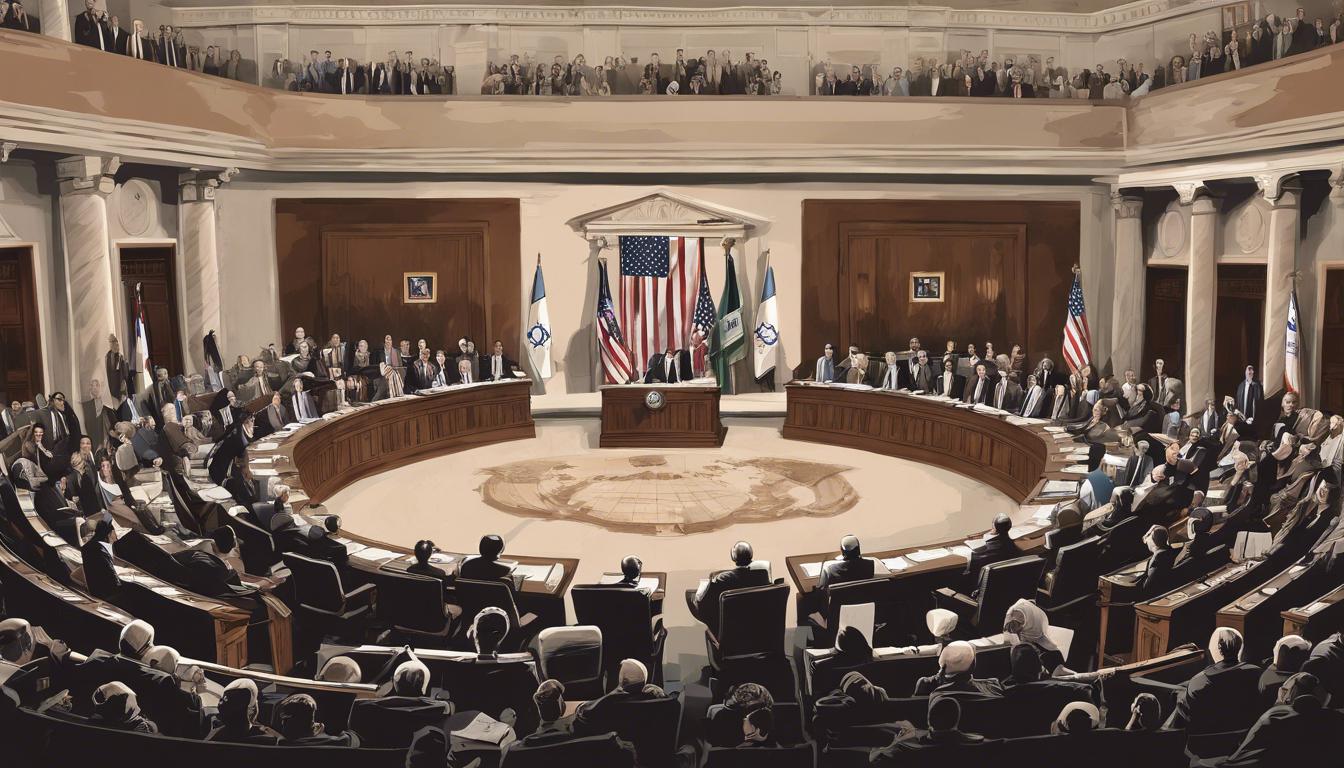In response to drone and missile attacks on Israel, the U.S. House of Representatives is gearing up to vote on sweeping sanctions against Iran, marking a significant shift in legislative focus and an intensification of U.S. foreign policy stance in the Middle East.
The U.S. House of Representatives is preparing for a significant vote to implement widespread sanctions on Iran and its allies following recent drone and missile attacks on Israel. This decision comes after Iran launched 330 drones and missiles towards Israel, an action that has been met with condemnation internationally. Although most of these were intercepted successfully by Israel, the event has heightened tensions in the region and has led both Republicans and Democrats to support a strong stance against Iran. The proposed sanctions are part of several legislative efforts aiming to limit Iran’s global interactions and reinforce Israel’s security through military, diplomatic, and economic means.
During this critical time, the legislation also addresses broader aspects of U.S. foreign policy with potential measures regarding Ukraine and Taiwan. House Majority Leader Steve Scalise highlighted the importance of the bills as a demonstration of solidarity with Israel. Meanwhile, President Joe Biden has called for restraint.
The incident has spurred debate within Israel as well, with critics of Israeli Prime Minister Benjamin Netanyahu, including opposition leader Yair Lapid, arguing that the government’s policy has weakened Israel’s deterrence capabilities. This is noteworthy as it marks the most direct confrontation in over three decades, exacerbated by recent tensions with Hezbollah, Hamas, and Yemen’s Houthi rebels. The situation underscores the delicate nature of regional alliances and the increasing necessity for international cooperation to ensure Israel’s security. Concerns are growing regarding the limitations of support from key allies, including the United States, which has hesitated to back an offensive strike against Iran, and Arab countries whose support may wane in the event of an escalated conflict.
Overall, these developments suggest a shift in both U.S. legislative priorities and Israel’s strategic military considerations, emphasizing the complex interplay of international relations in an increasingly volatile Middle East.













